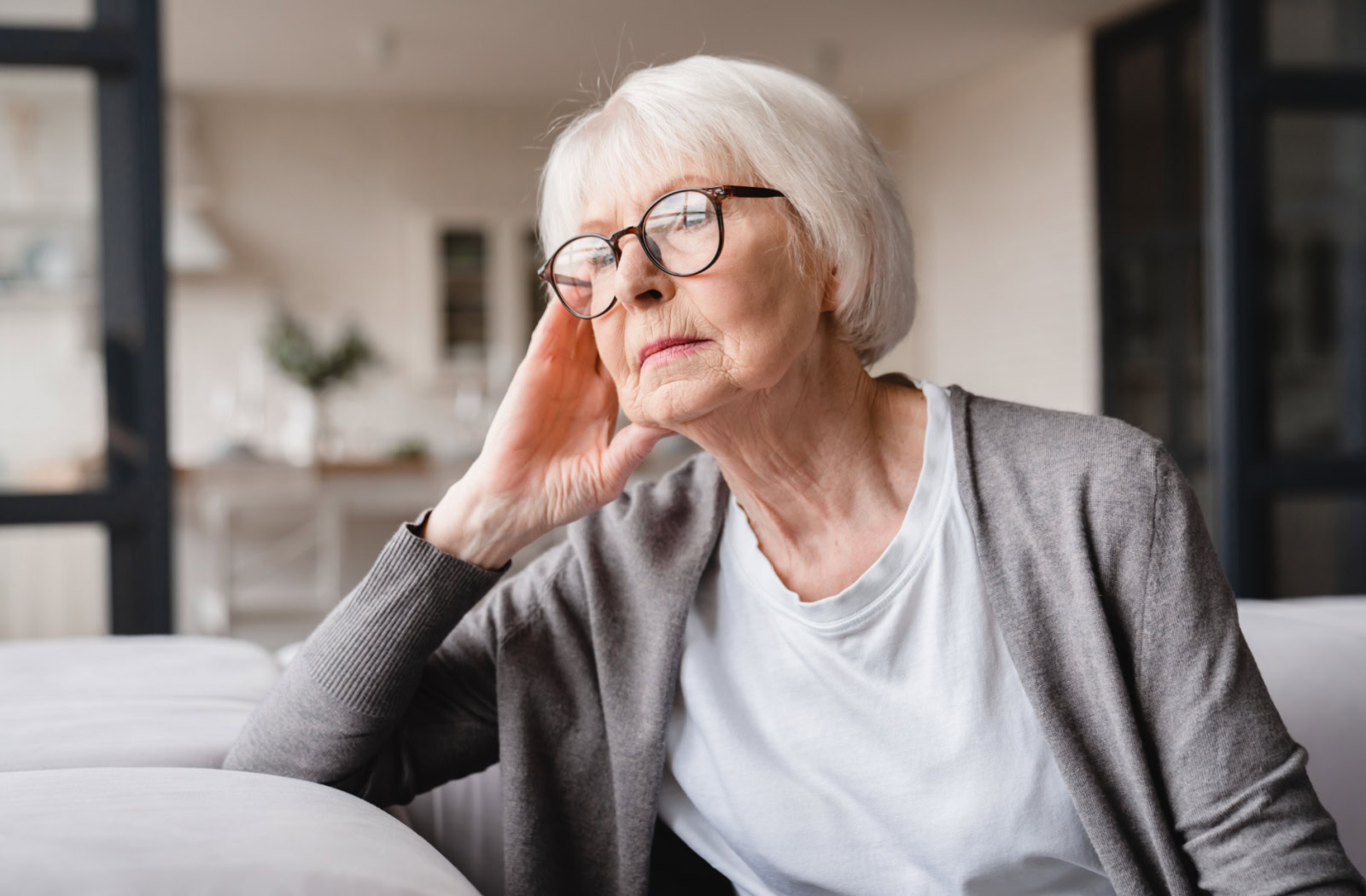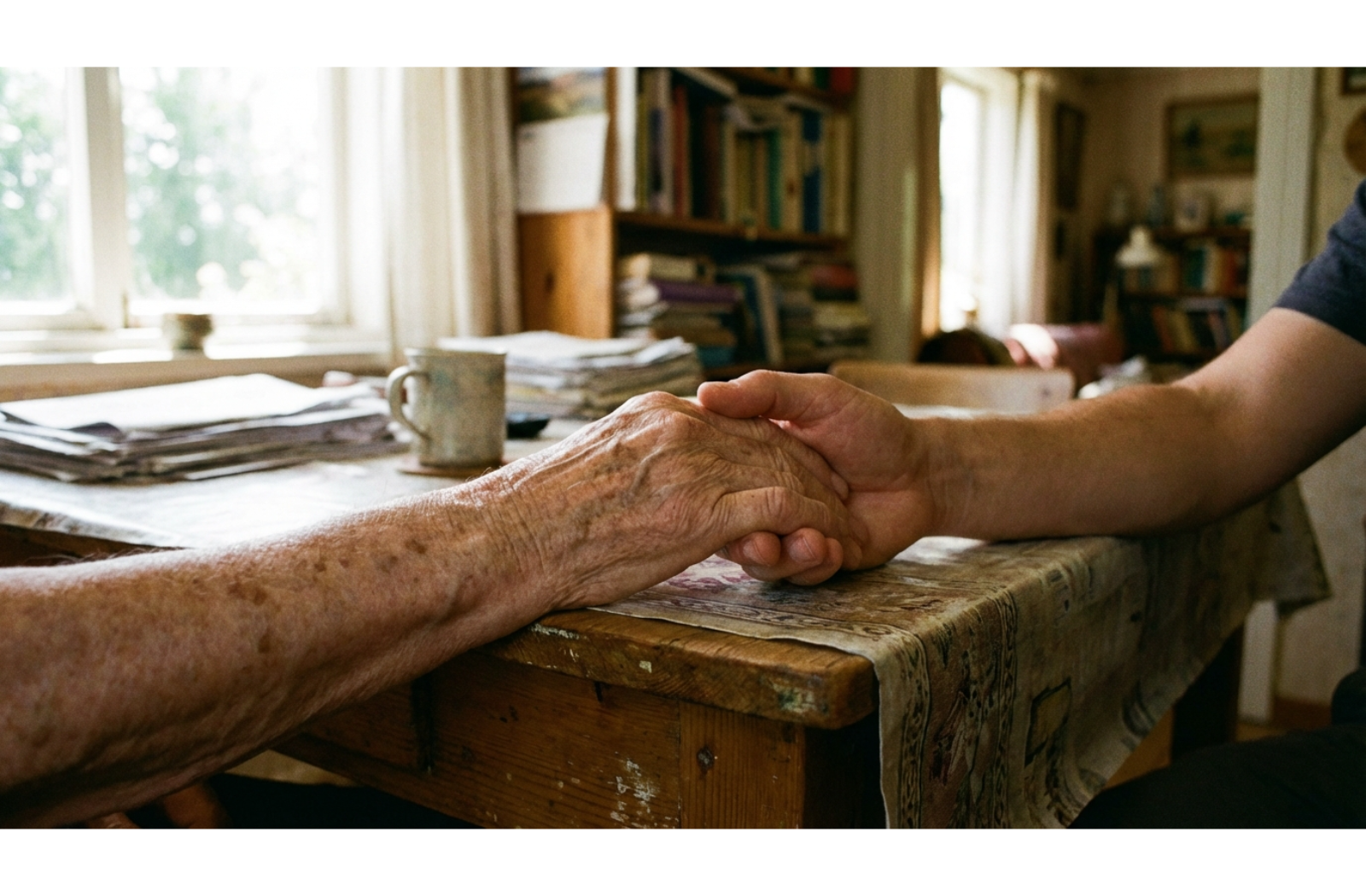What are the Final Stages of Lewy Body Dementia?
- Posted on
- By Mira Vie Senior Living

Lewy Body Dementia (LBD) is a complex and progressive neurological disorder that affects millions of individuals worldwide. As the disease advances, it presents unique challenges for both patients and their loved ones.
Navigating through the final stages of Lewy Body Dementia is incredibly challenging. The person affected faces significant memory and attention difficulties, alongside physical issues that may include trouble speaking and swallowing. Hallucinations and delusions can often add to the complexity of care.
Mira Vie Senior Living offers living options such as memory care and respite care to help support families and individuals who are experiencing the challenges of life with LBD. We offer each of our residents supportive resources, 24/7 care, and a variety of services and experiences with the understanding that each individual’s experiences will be different.
Understanding Lewy Body Dementia
Lewy Body Dementia (LBD) is a particularly complex type of dementia. Characterized by the accumulation of alpha-synuclein protein deposits in the brain, LBD is associated with significant cognitive, motor, behavioral, and mood-related symptoms.
Lewy Body Dementia serves as an overarching term encompassing both dementia with Lewy bodies and Parkinson’s disease dementia. These conditions markedly impair cognitive functions, reasoning abilities, and the capacity for independent living, impacting not only the patients but also their loved ones.
The diagnosis of LBD can be intricate, given its symptoms overlap with other dementia forms. Nevertheless, a thorough understanding of LBD and early diagnosis is important for effective management strategies.
Symptoms of Lewy Body Dementia
The predominant symptoms of Lewy Body Dementia include cognitive changes, mobility issues, alterations in sleep patterns, and behavioral shifts. This variety of symptoms presents a complex challenge for management and care. It’s important to know that individuals dealing with LBD may not have every symptom of dementia.
Up to 80% of individuals with Lewy Body Dementia report experiencing distinct and vivid visual hallucinations. For instance, they might perceive nonexistent people or observe objects transforming into entirely different entities.
Additionally, approximately 30% of those affected also encounter auditory hallucinations.
The Final Stages of Lewy Body Dementia
Lewy Body Dementia typically moves from diagnosis to its final stages over five to eight years. But it’s not the same for everyone. Some individuals might go through it faster, and others might take a bit more time. No matter how fast or slow the disease progresses, we usually break it down into early, middle, and late stages. This blog explores the late stages specifically.
Cognitive Decline
During the final stages, individuals with LBD experience severe cognitive decline, including profound memory loss, confusion, and disorientation. Communication becomes increasingly difficult, and individuals may have trouble recognizing loved ones.
Motor Symptoms
Movement difficulties such as rigidity, tremors, and bradykinesia worsen during this stage, often leading to significant impairment in mobility and independence.
Behavioral & Psychological Symptoms
Behavioral changes such as agitation, aggression, and hallucinations are common in the final stages of LBD. These symptoms can be distressing for both the individual and their caregivers.
Increased Vulnerability to Infections
As the disease progresses, individuals with LBD become more susceptible to infections such as pneumonia, which can further exacerbate their condition.
Swallowing Difficulties
Dysphagia, or difficulty swallowing, may occur in the later stages of LBD, increasing the risk of aspiration pneumonia and malnutrition.
Palliative Care & Support
Palliative care is all about comfort, pain management, and maintaining the best possible quality of life amid serious health challenges. But it’s not just the physical symptoms that palliative care looks after; it also offers emotional and spiritual support.
For those dealing with LBD, palliative care is extremely important. Given that there’s no cure for LBD, managing symptoms and providing comfort becomes the focus. Palliative care teams are incredible in their dedication to easing these symptoms and providing support not just to the patients, but their families too.
The impact of palliative care is huge. It eases the burden on caregivers, improves management of both the physical and psychological symptoms, and assists in planning for future care needs through things like advanced directives. What’s great is that it’s never too soon or too late to consider palliative care. It’s about making the most of each day, not just extending days.
If you or someone close is facing LBD, it might be time to explore palliative care options. It’s a challenging path, but this kind of support can significantly ease the journey for everyone involved.
End-of-Life Care
End-of-life care is the support and medical attention required as you near the end of your journey. It’s not just for those final moments before your heart gives its last beat, rather, a lot of older adults dealing with chronic illnesses might need a hand for days, weeks, or even months leading up to their goodbye.
What the end looks like can really vary based on what someone wants, needs, or decides. Some might picture their last chapter at home, while others could choose to stay in a hospital or care community till the end.
Many hope to have their family and friends close by, but sometimes, people pass away when their loved ones step out for a moment. If it’s doable, there are ways to make sure your loved one’s final days are peaceful, honoring their wishes and treating them with dignity as they depart.
When it comes down to it, individuals nearing the end usually need support in a few key areas: being comfortable physically, having their mental and emotional needs met, finding spiritual solace, and getting help with everyday stuff. And it’s not just the person who’s passing away who needs support–their families often need a helping hand with practical things and coping with the emotional rollercoaster, too.
Coping Strategies for Caregivers
Caring for a loved one truly reflects the depth of your compassion. However, it’s equally important to remember that self-care is paramount. It is important to recognize and celebrate your own efforts, stepping back and acknowledging your hard work can significantly impact your well-being. It’s about letting go of that harsh inner critic and adopting a stance of self-compassion.
Building a support network is also an essential tool for caregivers. Whether it’s joining support groups, seeking counseling, or indulging in self-care activities that rejuvenate you, these resources are vital for maintaining your strength and resilience. At the end of the day, if you’re depleted, your ability to care for others diminishes.
Amid the demanding role of caregiving, finding moments of joy and connection stands out as particularly valuable. These moments offer respite and happiness amidst the daily challenges. So, take time to breathe, embrace these positive experiences, and continue your commendable work. Prioritizing your well-being not only benefits you but also enhances the care you provide to your loved one.

Navigating the Final Stages of Lewy Body Dementia With Compassion & Resilience
The final stages of Lewy Body Dementia present significant challenges for both individuals with the disease and their caregivers.
By understanding the progression of LBD and implementing appropriate palliative care and support measures, it is possible to improve the quality of life for individuals with advanced LBD and provide compassionate end-of-life care.
Caregivers need to prioritize self-care and seek support from healthcare professionals, community resources, and the respite care team here at Mira Vie Senior Living to navigate this challenging journey with resilience and compassion. We are here every step of the way to support your family through these changes. Reach out to us today to learn about our communities.
Related Articles

Understanding Various Types of Assisted Living Contracts
Key Takeaways Senior living communities offer several contract types, including those with large entrance payments